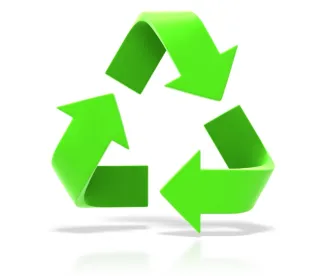NPR and PBS recently released an attention-grabbing investigation titled “How Big Oil Misled The Public Into Believing Plastic Would Be Recycled.” According to the investigation, beginning in the late 1980s, “big oil” began a $50 million-a-year ad campaign promoting the benefits of plastic, while simultaneously informing the public that plastic is recyclable. In fact, according to the investigation, due to the cost and complexity of recycling plastic, most plastic trash is buried in landfills and will never be repurposed into new products.
We have not yet seen any class actions filed in the wake of this investigation, but to prepare advertisers for this possibility, this post summarizes relevant guidance from the FTC Green Guides, and covers some recent cases filed prior to the investigation.
FTC Green Guides
The FTC “Green Guides” provide guidance on environmental marketing claims. Advertisers seeking to make “recyclable” claims should consult the Green Guides, but a few key points are summarized below.
Under the Green Guides:
-
A “recyclable” claim is deceptive and cannot be qualified where:
-
there is no end market for the item – i.e., where the item cannot be reused or repurposed into a different product or packaging; or
-
any component or attribute of the product significantly limits the ability to recycle it (for example, its size or shape).
-
-
A “recyclable” claim should be qualified where:
-
recycling facilities that accept the product are not available to a “substantial majority” (which the FTC defines as at least 60%) of consumers or communities where the item is sold; or
-
only part of the product or packaging can be recycled, in which case the advertiser should clearly and prominently qualify the “recyclable” claim to indicate which portions are recyclable; or
-
the claim is made on the product package in a way that may falsely communicate that both the packaging and the product are recyclable, in which case the advertiser should clearly and prominently qualify the “recyclable” claim to specify which portions are recyclable.
-
-
An unqualified “recyclable” claim can be made only where the entire product or package, save any “minor incidental components,” is recyclable, and when recycling facilities are available to a “substantial majority” of consumers (defined as at least 60 percent).In September, Judge Haywood S. Gilliam Jr. of the U.S. District Court for the Northern District of California certified a class of California purchasers of Keurig Green Mountain’s “K-Cups” single-serve coffee pods, in a suit alleging that the company falsely labels the pods as recyclable.
Smith v. Keurig Green Mountain
In September, Judge Haywood S. Gilliam Jr. of the U.S. District Court for the Northern District of California certified a class of California purchasers of Keurig Green Mountain’s “K-Cups” single-serve coffee pods, in a suit alleging that the company falsely labels the pods as recyclable. Kathleen Smith v. Keurig Green Mountain, No. 18-cv-06690-HSG (N.D. Cal. September 21, 2020).
Relying on FTC guidance, Plaintiff alleged that Keurig’s unqualified “recyclable” claims are misleading because (a) less than 60% (the threshold for a “substantial majority” under the FTC Green Guides) of recycling facilities will accept the products, (b) the products’ size prevents them from being properly sorted by recycling programs, and (c) there is a lack of end markets to recycle the products. Based on these allegations, Plaintiff brought claims for breach of express warranty, violations of the CLRA and UCL, and unjust enrichment.
In opposing class certification, Keurig argued that Plaintiff failed to show her claims were typical of those of the class and that she was an adequate class representative because, among other things, Plaintiff (1) did not read the recycling label on the boxes of the products that she purchased, and (2) could not say whether the recycling agency in her community recycles K-Cup Pods. The court rejected both arguments.
First, the court noted that Plaintiff did not testify that she did not read the recyclability labels, but rather that she did not see the accompanying disclaimer advising consumers to “check locally” to determine whether their local recycling facilities accept the pods. However, the court found, this did not show that Plaintiff’s claims were not typical or that she was an inadequate class representative. Rather, “[w]hat matters is that Plaintiff was aware of Keurig’s representations that the Products were recyclable,” and purchased the products believing these “recycling” claims were true.
The court also found that Plaintiff’s lack of knowledge as to whether her local recycling agency accepts the K-Cup pods did not make her claims atypical, and did not render her an inadequate class representative. According to the court, whether Plaintiff’s particular local facilities accept the pods is of little consequence because her claims focus on recyclability requirements beyond just collection. Plaintiff’s theory is that even if the pods were made from a material collected in a substantial majority of communities, the Products are still not “recyclable” under FTC guidelines due to their size, which prevents accurate sorting or separation, and the lack of end markets to recycle them. Therefore, whether the “recyclable” claim is deceptive does not turn solely on whether Plaintiff’s local facility accepts the pods.
Blueland Cleaning Products NAD Challenge
The National Advertising Division recently recommended discontinuance of an advertiser’s unqualified “recyclable” claim where the advertising did not clearly communicate that the product may not be accepted at a consumer’s local recycling facilities. One Home Brands d/b/a Blueland (Blueland Cleaning Products), NAD Case #6416 (2020). Blueland sells a cleaning product in acrylic “Forever” bottles that it claimed were “100% recyclable.” Blueland explained that because not all consumers have access to recycling centers that accept acrylic products, it takes the bottles back from the consumer (at no expense to the consumer) and pays to have them recycled.
Citing the FTC Green Guides, NAD noted the advertiser failed to provide evidence regarding the percentage of consumers that have access to facilities that recycle acrylic. NAD therefore looked to the adequacy of the advertiser’s qualification of its “recyclable” claim. Blueland’s advertising stated that its acrylic “Forever Bottles (which aren’t intended for you [the consumer] to recycle – is 100% recyclable.” However, NAD determined that the qualification that the bottles “aren’t intended for you to recycle” did not clearly communicate that the bottles were primarily only “recyclable” through the advertiser’s take-back program, and not through a consumer’s local facilities. In particular, NAD noted a reasonable consumer might interpret this language to refer to the fact that the “Forever Bottles” are intended to be used repeatedly, rather than as a disclaimer conveying a limitation on the availability of recycling facilities. NAD therefore recommended that Blueland discontinue its unqualified recyclability claims for its “Forever” bottles, and modify its claims to clarify that the bottles are only recyclable through Blueland’s take-back program.





 />i
/>i
